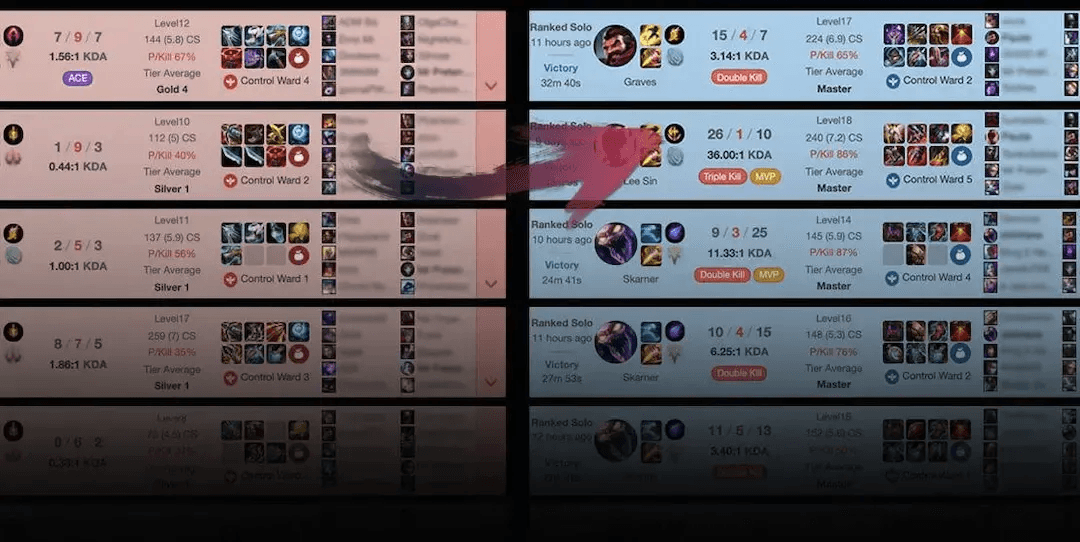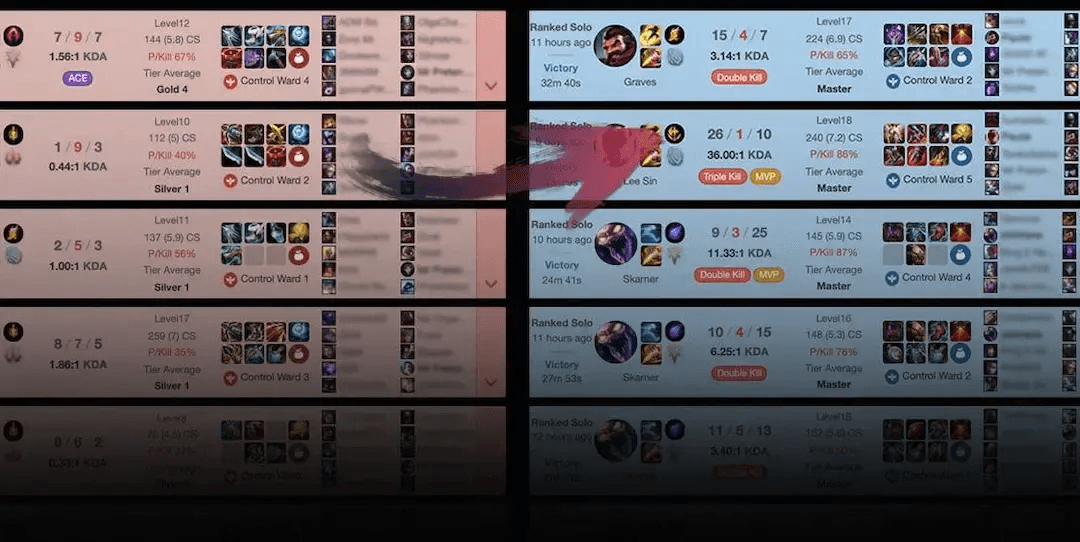


Have you ever wondered why some League of Legends players seem to be stuck at the same rank season after season while others continuously improve? It's not about natural talent or luck. The key lies in understanding and applying certain principles to enhance your gameplay. In this guide, we'll reveal 10 crucial strategies you need to know to climb the ranks effectively.
Adopting a growth mindset is the first and most critical principle for improving at League of Legends. Popularized by psychologist Carol Dweck, a growth mindset means believing that one's abilities and skills can develop over time with effort and practice. Players with a growth mindset embrace challenges, see failures as learning opportunities, and value constructive feedback.
In contrast, players with a fixed mindset believe their skills and intelligence are static traits. They may blame teammates for losses and view effort as futile, leading to a lack of improvement. Developing a growth mindset is crucial for League, as it helps you remain resilient and motivated, even when the game gets tough.
See every match as a chance to learn, and understand that your rank reflects your effort and adaptability—not just your talent.
One of the fastest ways to improve at League of Legends is by having a League of Legends coach review your games. A coach provides a fresh, expert perspective on your gameplay, pinpointing mistakes and areas for improvement that you might overlook on your own. They can help you:
Rather than guessing what you need to work on, a coach gives you a clear roadmap to improvement. If you’re serious about climbing the ranks, investing in a coach at WeCoach could be the game-changing step you need.
One major pitfall is focusing too much on results-based thinking. Wins and losses are often dictated by short-term variance. Even with a high win rate (e.g., 70%), you will still lose 30% of your games, potentially in streaks. This is why it's essential to focus on learning from each game, regardless of its outcome.
The better approach is probability-based thinking. Instead of assessing a play based solely on its result, evaluate whether that choice would likely succeed in similar scenarios. Here's how to do it:
Number Advantages: Was your play an attempt with fewer allies than the enemy? If so, it's a low-probability play.
Items & Levels: Did the enemy have item or level advantages? If so, it's likely to be an unfavorable play.
Resources: Did you enter a fight with low health or mana? That decreases the likelihood of success.
Remember, even high-probability plays can fail due to mechanical errors. Therefore, aim to make decisions based on these indicators, not just the final outcome.
Humans naturally have a negativity bias, which makes us focus more on negative experiences than positive ones. In League of Legends, this bias can lead to:
To counter this, balance your focus on both positives and negatives. For example, if you lost a team fight because your team started it while you were in a side lane, evaluate whether the gold you gained outweighs the enemy's advantage.
Always analyze if a play generates more positive than negative results over the long term.
Making mistakes is an essential part of improving. A famous study found that individuals who learned through making and analyzing mistakes outperformed those who avoided errors altogether. In League of Legends, this means pushing yourself to actively try to win your lane rather than playing passively to "not lose."
Whenever you make mistakes, it's crucial to review them. Don't just queue up for another game immediately after a loss. Instead, analyze your mistakes and figure out how to improve.
Let mistakes be a part of your learning process. Actively push your boundaries and try to review and adjust your gameplay based on your errors.
Deliberate practice is a concept coined by psychologist K. Anders Ericsson. It focuses on goal-directed practice with immediate feedback. For example, if you're trying to improve your last-hitting skills, follow these steps:
You can apply deliberate practice to various skills like map awareness. Use tools like a metronome app to improve your awareness by looking at the map regularly. Over time, gradually increase the speed between beeps for more challenging practice.
Purposeful and concentrated practice on specific skills is far more effective than mindlessly playing numerous games.
Interleaving involves mixing different types of practice instead of blocking similar tasks together. For instance, instead of focusing on the last hitting for a whole session, then trading in the next, and map awareness the day after, mix these skills daily. For example:
Benefits of interleaving include:
Mixing practice across multiple skills will accelerate your improvement and keep your training sessions diverse.
Spaced repetition is the process of reviewing skills periodically to improve memory retention. Practicing a skill once won't lead to long-term mastery; instead, space out your practice sessions over time. For instance, after learning a new combo, practice it the next day, two days later, and then after a longer interval until it becomes second nature.
Don't cram your practice if you're working on a mechanic or concept. Spread it out over several days or weeks to ensure long-term mastery.
Your mental stack is your working memory for in-game tasks, like last-hitting, tracking enemy cooldowns, and map awareness. To improve it:
Pro Tip: Master one champion at a time to free up mental resources to focus on other game fundamentals.
For every three games:
Therefore, approach every match as if it is the game where your impact matters. Your goal is to learn from each game, win or lose, to improve your chances in those crucial matches.
Even with a high win rate, climbing requires many games. If you maintain a 55% win rate, it would take approximately 267 games to climb from Silver to Gold, assuming two hours of gameplay per day. Increasing your win rate to 60% halves this time.
Prioritize focused, intentional practice over grinding large quantities of games. Improving your win rate through quality games will reduce the grind significantly.

Roger is an esports journalist and content writer specializing in League of Legends guides, patch analysis, and coaching insights.
View all articles